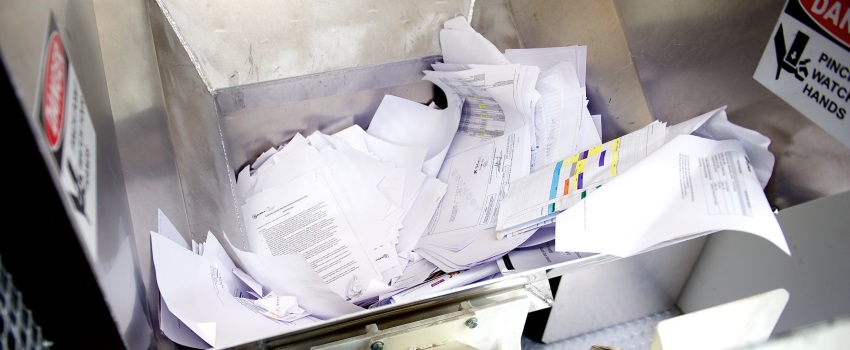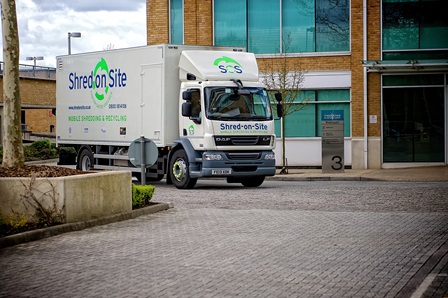Spring cleaning your documents… what do you need to shred?
Spring is the traditional season for having a good clear out. It’s at this time of year that we tend to want to make space and take steps to be more efficient. Sorting and disposing of your documents is a natural part of this process and can be a great way to improve security and to ensure that you’re not holding on to anything that you don’t really need. The best way to deal with a document spring clean is to shred anything unwanted, to ensure that confidential or sensitive information doesn’t fall into the wrong hands and to dispose of documents in an environmentally friendly way. So, if you’re currently considering a document spring clean, what do you need to think about shredding?
Out of date documents
Are you hoarding years worth of old documents that you just don’t need to hold on to anymore? From old contracts through to decades old tax documents, anything that goes back beyond 10 years is normally a good candidate for the shredder. When you’re sorting through your documents for a spring clean make a separate pile for those that fit into this category and then go through them individually. Once you’ve made sure they are no longer useful or necessary they can be safely disposed of by shredding to ensure that they don’t end up supplying a third party with personal information about you.
Financial records and banking documents
Hoarding financial documents is quite common but can present a serious security risk. This is the kind of information that fraudsters look for because, even though it may be years out of date, details such as bank information or tax identification numbers don’t tend to change in that time. Keeping financial records and banking documents for too long not only takes up unnecessary space but will also give a third party with potentially sinister intent plenty of opportunity to use this personally identifying data for their own purposes. As a result, the only really safe way to dispose of financial records and banking documents is to shred this information. Shredding on site ensures that nothing can get lost in transit and that this key information remains secure.
Any sensitive or confidential documents
It’s amazing what fraudsters can do with even the smallest amount of sensitive or confidential information these days. So, when it comes to documents that may contain this kind of data, safe disposal such as shredding is absolutely essential. Sensitive or confidential documents could be those containing private personal data, such as medical information or addresses, or could relate to business development or trade secrets. When you’re spring cleaning your documents it’s important to identify anything that might contain this kind of information and to set it aside when it comes to disposal to ensure that it is shredded safely.
Shredding is the most secure and sustainable way to dispose of documents during a spring clean, whether they are personal documents or business papers. Contact us to find out more about the best shredding choices for you.
Author: Mark Coombes, Follow me on Google+







